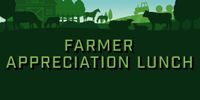Municipality of Rhineland officials have taken a hard look at what climate change means for the future of the municipality.
Working alongside representatives from Eco-West, participants at Tuesday's climate consultation identified and prioritized ways of reducing local risks of climate change and limiting the municipality's contribution. The goal, according to Reeve Don Wiebe, is to make Rhineland resilient and sustainable.
"We were challenged based on some feedback that the group got from a community survey earlier in the year, and we talked about what was happening in the rest of the country, and how we respond to weather events and thinking what are we doing for our future generations? What needs to be there for them to be successful? So some of the things we do with infrastructure need to be done with that in mind," explained Wiebe.
He points to the Thanksgiving weekend snowstorm is an example. Because generators were already installed in all of the municipality's pumping stations, Wiebe says no one in Rhineland was without water during the extended power outages.
Tuesday's workshop followed an assessment conducted by Eco-West earlier in 2019 which produced a framework for sustainable energy consumption in the municipality. The goals of that framework include reducing greenhouse gas emissions from transportation, waste per household, and energy use in municipal buildings and facilities, as well as managing sustainable water supply and creating environmental awareness.
"This was very timely," said Wiebe, noting the framework and feedback from the latest consultation will factor into the municipality's asset management plan currently under development. "...we put some reserve funds aside, but then we also need to determine the risks and how do we factor them into the asset management plan?," he explained.
Council and administrators will take the results of Tuesday's workshop back to their annual planning session scheduled for January, and consider how those ideas factor into setting future priorities and budgets.
"There were lots of small suggestions - everything counts - and so I think we can look at those suggestions and see what makes sense to do now, what kind of awareness we need to develop and how do we help people be self-sufficient. So there's a social dimension, economic dimension and of course, a government dimension as well," said Wiebe.


















